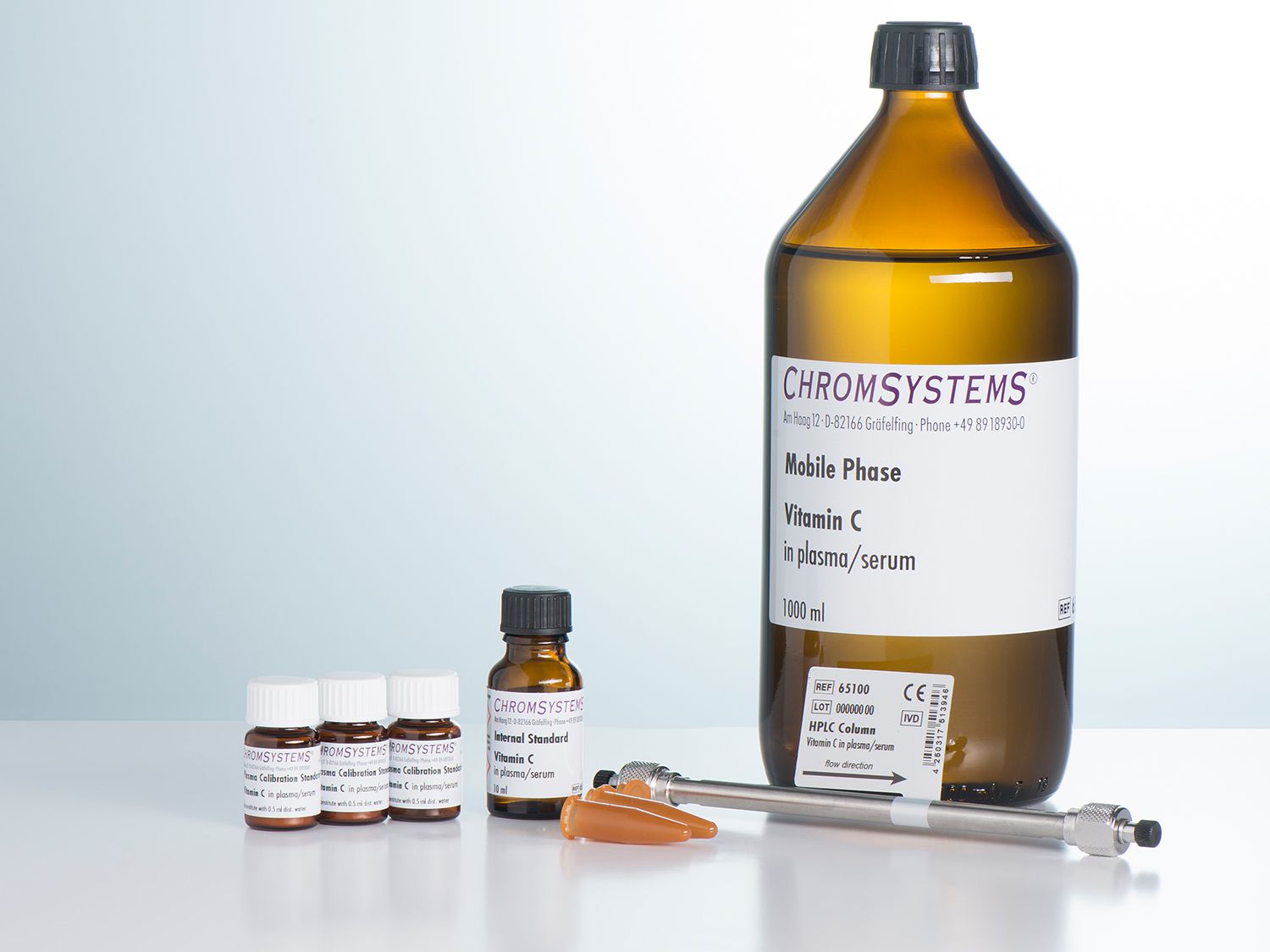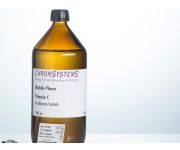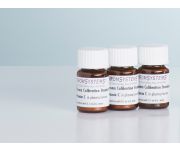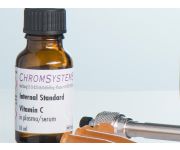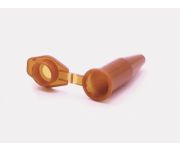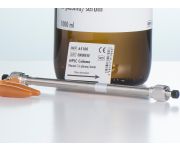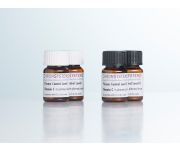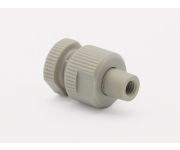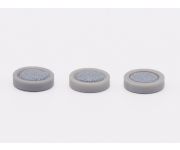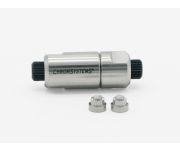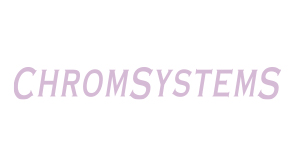Vitamin C in Plasma/Serum - HPLC
Simplified sample preparation
Enhanced column stability
High stability of standards and controls
CE-IVD validated product ready for IVDR within timeframes and transition periods specified by the IVDR 2017/746
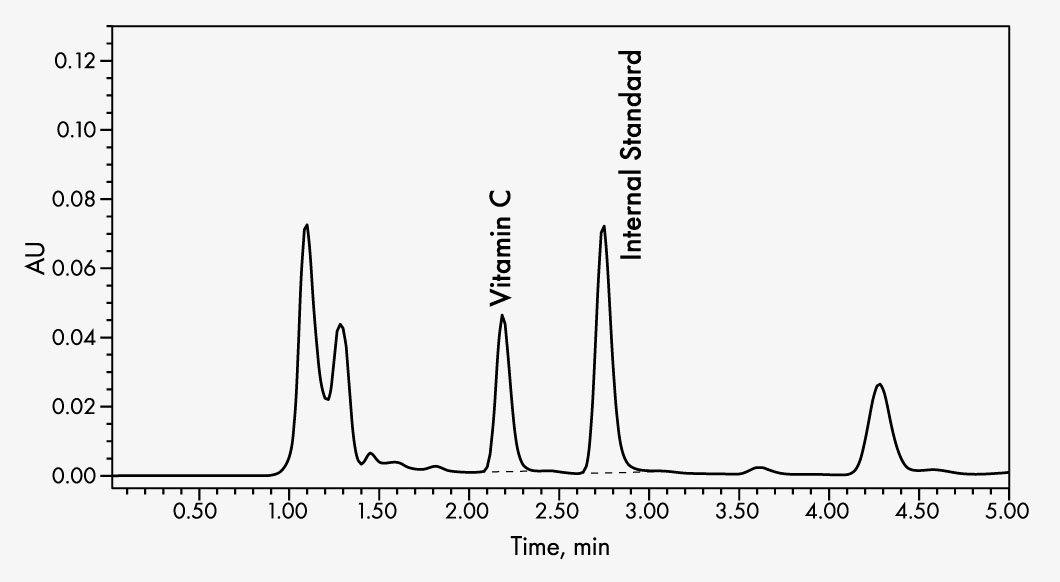

Vitamin C
Clinical relevance
Vitamin C (ascorbic acid, ascorbate) is a water-soluble vitamin that is an essential cofactor for the human body, for instance in the catabolism of tyrosine and the synthesis of catecholamines. Regular consumption of fruit and vegetables is usually sufficient to cover the body’s vitamin C needs.
In the case of vitamin C deficiency, procollagen chains are produced insufficiently and stable fibrils cannot be formed in the affected cells. Without functioning collagen, the blood vessels and tendons become fragile and the typical skin-related symptoms associated with scurvy start to develop. In addition to the collagen damages described above, further diseases caused by vitamin C deficiency include bleeding of uncertain origin, loss of teeth and overactive thyroid gland (hyperthyroidism). Vitamin C deficiency is also observed in dialysis patients, in chronic alcohol abuse and during pregnancy.
Product advantages
- High stability of processed samples and controls
- Enhanced column stability
- Reliable quantification with a stable internal standard
This Chromsystems kit allows the reliable chromatographic determination of vitamin C in one isocratic HPLC run with UV detection. An efficient protein precipitation step removes interfering components and stabilises Vitamin C simultaneously. A stable internal standard is used for reliable quantification. Due to a special stabilisation of the prepared samples, it is also possible to reliably process and measure large sample batches.
| Method of Analysis | HPLC |
|---|---|
| Number of Tests | 100 |
| Please note | The freely available information on this website, in particular on the sample preparation, are not sufficient to work with our products. Please read instructions and warning notices on products and/or instruction manuals. |
| Lower Limit of Quantitation | 0.4 mg/l |
| Upper Limit of Quantification | 0.4–100 mg/l |
| Intraassay | CV ≤ 3.8 % |
| Interassay | CV ≤ 4.8 % |
| Recovery | 97–103 % |
| Specimen | Plasma/Serum |
| Sample Preparation |
|
| Run Time | 5 min |
| Injection Volume | 20 µl |
| Flow Rate | 1.5 ml/min |
| Column Temperature | ambient (~25 °C) |
| Gradient | Isocratic |
| Wavelengths | 245 nm |
| Additional Info | Any isocratic HPLC system with UV detection is suitable. |
| Parameters | Vitamin C |


Vitamin C
Clinical relevance
Vitamin C (ascorbic acid, ascorbate) is a water-soluble vitamin that is an essential cofactor for the human body, for instance in the catabolism of tyrosine and the synthesis of catecholamines. Regular consumption of fruit and vegetables is usually sufficient to cover the body’s vitamin C needs.
In the case of vitamin C deficiency, procollagen chains are produced insufficiently and stable fibrils cannot be formed in the affected cells. Without functioning collagen, the blood vessels and tendons become fragile and the typical skin-related symptoms associated with scurvy start to develop. In addition to the collagen damages described above, further diseases caused by vitamin C deficiency include bleeding of uncertain origin, loss of teeth and overactive thyroid gland (hyperthyroidism). Vitamin C deficiency is also observed in dialysis patients, in chronic alcohol abuse and during pregnancy.
Product advantages
- High stability of processed samples and controls
- Enhanced column stability
- Reliable quantification with a stable internal standard
This Chromsystems kit allows the reliable chromatographic determination of vitamin C in one isocratic HPLC run with UV detection. An efficient protein precipitation step removes interfering components and stabilises Vitamin C simultaneously. A stable internal standard is used for reliable quantification. Due to a special stabilisation of the prepared samples, it is also possible to reliably process and measure large sample batches.
| Method of Analysis | HPLC |
|---|---|
| Number of Tests | 100 |
| Please note | The freely available information on this website, in particular on the sample preparation, are not sufficient to work with our products. Please read instructions and warning notices on products and/or instruction manuals. |
| Lower Limit of Quantitation | 0.4 mg/l |
| Upper Limit of Quantification | 0.4–100 mg/l |
| Intraassay | CV ≤ 3.8 % |
| Interassay | CV ≤ 4.8 % |
| Recovery | 97–103 % |
| Specimen | Plasma/Serum |
| Sample Preparation |
|
| Run Time | 5 min |
| Injection Volume | 20 µl |
| Flow Rate | 1.5 ml/min |
| Column Temperature | ambient (~25 °C) |
| Gradient | Isocratic |
| Wavelengths | 245 nm |
| Additional Info | Any isocratic HPLC system with UV detection is suitable. |
| Parameters | Vitamin C |

